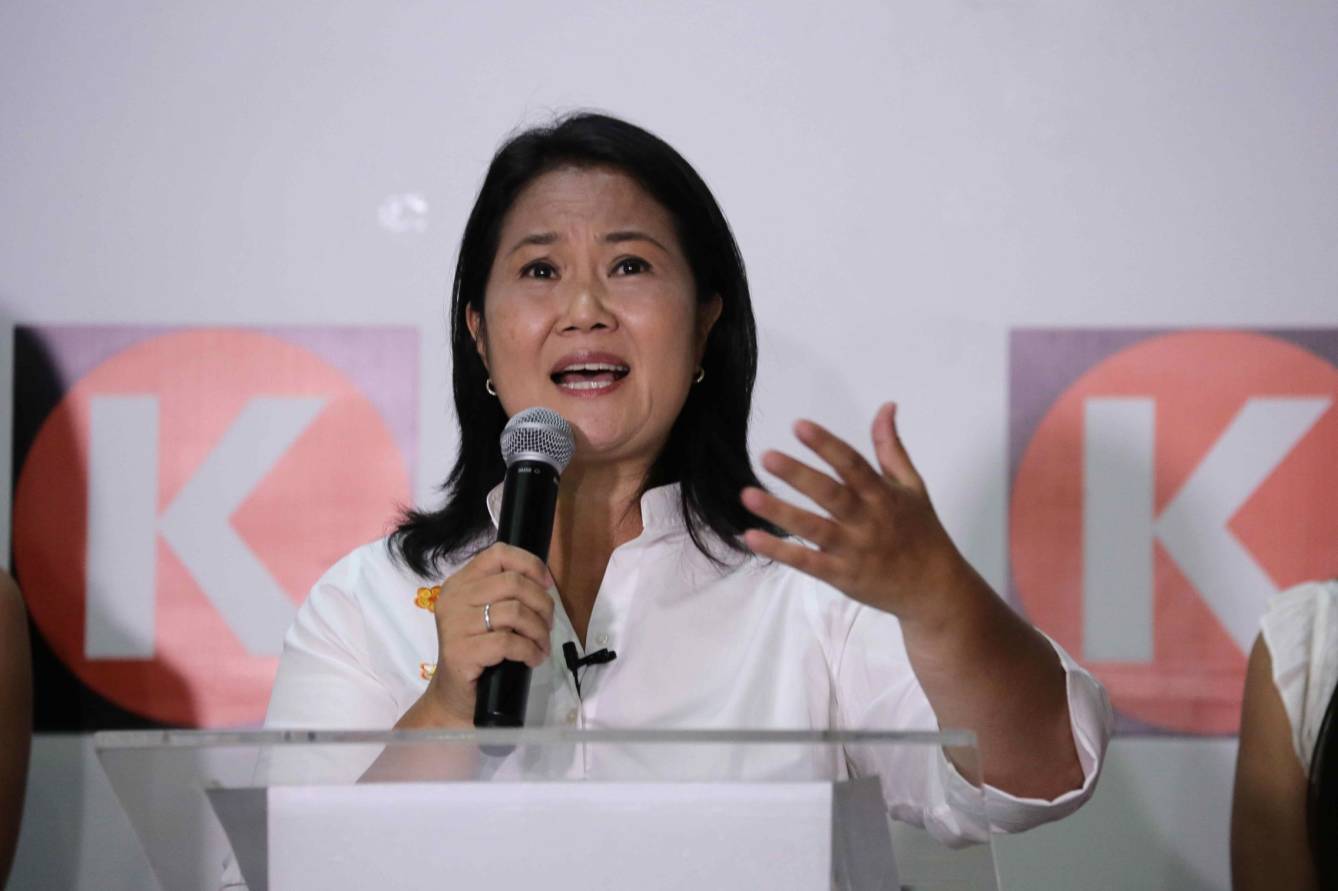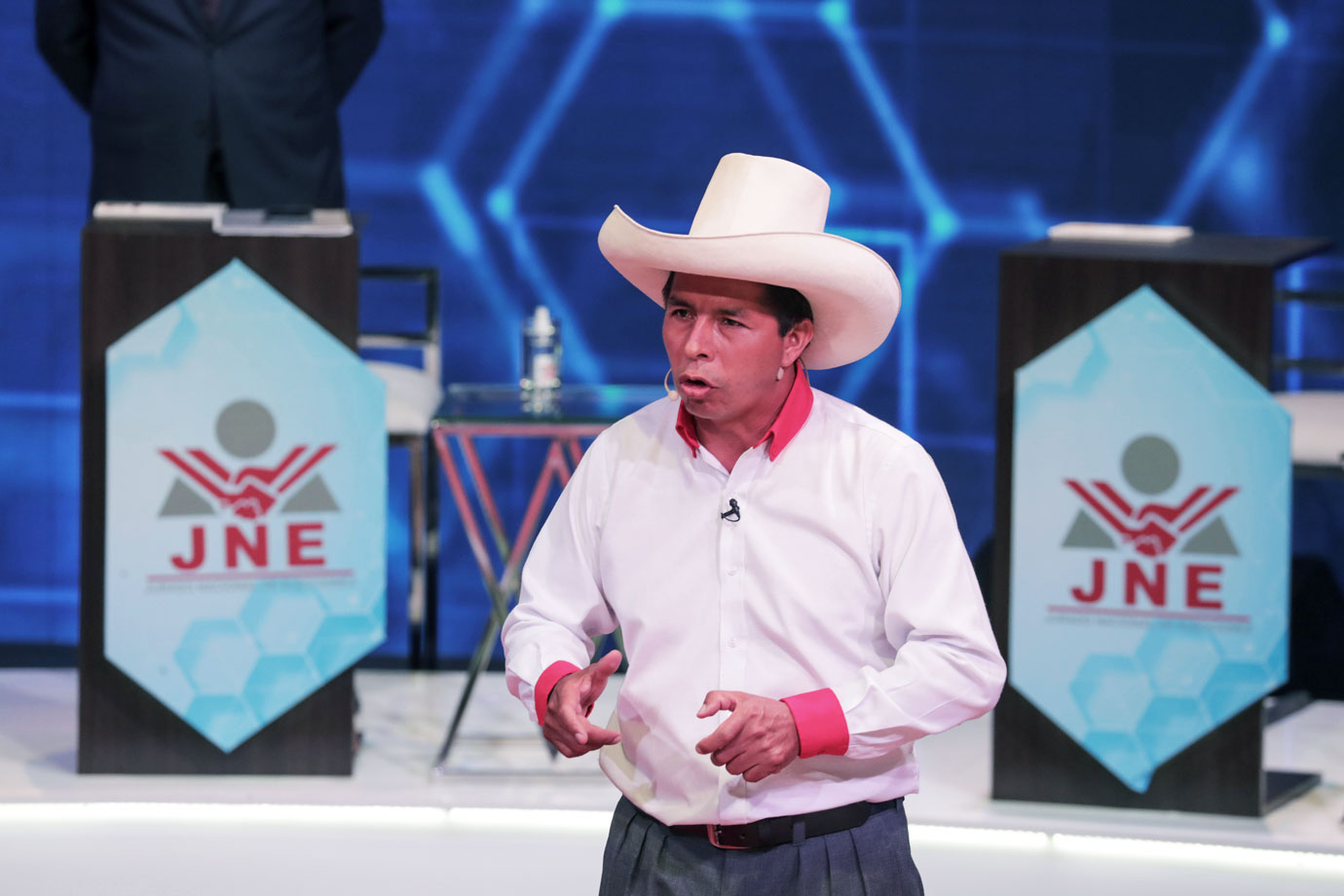RIO DE JANEIRO, BRAZIL – The extreme left and an authoritarian right will most likely measure their forces in the second round of the Peruvian elections after the first official counts confirmed Pedro Castillo and Keiko Fujimori as the candidates with the best chances to make it to the runoff.
Castillo, who has burst like a hurricane in this vote, leads by a wide margin both in the quick count estimates (18.1 %) and in the actual count, which with 11 % of the votes counted keeps him in first place with 15.8 % of the votes.

With these margins, Castillo, a teacher and leader of a radical faction of the teachers’ union has assured his access to the ballot unless there is a very improbable statistical surprise.
The first provisional data also favor Fujimori, who would thus arrive for the third consecutive time to an electoral definition after her failures to reach power in 2011 and 2016.
Read: Presidential election – Anyone could be Peru’s next president
The official count so far puts the heir of disgraced former president Alberto Fujimori (1990-2000) in fourth place, behind Hernando de Soto and Rafael López Aliaga, but with the nuance that the percentage counted corresponds only to urban areas and areas close to the counting centers, far from the centers of the pro-Fujimori vote.
More accurate than the initial count, the quick statistical recount places the politician with 14.4%, comfortably with one foot on the second round ballot.
METEORIC RISE
In the presidential definition, the presence of Castillo coincides with the estimates that during the last weeks had detected a meteoric and surprising rise of this candidate, whose proposals are of a hard left nature in the economic field and conservative in the social field.
In an address to his followers from the Plaza de Armas of Tacabamba, he assured after recognizing the results of this election Sunday that “the change and the struggle have just begun” in Peru and reaffirmed his commitment to establishing an alliance with “the same and true Peruvian people” to preserve their roots.
“Today, the Peruvian people have just had the blindfold removed from their eyes. They have had enough time, decades, but how do they leave the country? You arrive at Metropolitan Lima, to the big cities, and you find places with opulence that do not look beyond their nose,” expressed the candidate.

Fujimori is, for the moment, the candidate with the best options to occupy second place ahead of candidates De Soto and Aliaga, although the recount may still bring surprises in this sense.
Given how close the recount is expected to be, Fujimori has already offered De Soto to “work together” to confront the “radical left” represented by Castillo.
“Beyond the differences we have, there are also great coincidences,” the candidate affirmed before pointing out that between them, “it doesn’t matter who passes to the second round. I hope we can work together”.
Keiko Fujimori also built bridges with other parties that “do not want (the country) to become Cuba or Venezuela.”
Rea: Tired of politicians, Peruvians skeptical ahead of close presidential election
“We are going to confront populism and the radical left; there will be many Peruvians who will join us,” said Fujimori.
The candidate presented herself on this occasion with an authoritarian right-wing proposal, vindicating the presidency of her father, imprisoned for human rights violations and whom she has already said she intends to pardon if she reaches the Government Palace, while betting on applying a “hard hand” to solve Peruvians’ problems.
Fujimori is accused of money laundering linked to the alleged illegal financing of his party’s campaigns in 2011 and 2016 by the Brazilian company Odebrecht, among others.
CONGRESS DIVIDED
Meanwhile, the congressional vote would leave, as expected, a Parliament with up to 11 different political groups, with a vote of between 10.7% and 5.4% of votes, led by Acción Popular, the party of Yonhy Lescano, the candidate who until a few days ago was the great favorite to reach the second round but who fell by the wayside.
Peru Libre, of Castillo, would obtain a similar result, followed by Fujimorism and the radical right of Renovación Popular, of López Aliaga.
Read: Five candidates for Peru’s presidency in technical tie according to polls
In any case, the polls confirm that Peru will have a very dispersed and polarized legislative power, which will have difficulties coordinating many party blocs, none of which will have a great weight in a chamber composed of 130 deputies.
The polls also point out that former President Martin Vizcarra (2018-2020) could obtain a seat in Congress for the Somos Peru party.
COMPLEX DAY
The election day took place under a complicated situation, with the covid pandemic breaking records of deaths and contagions and the country submerged in a deep economic crisis.
This was added a delay in the opening of a large number of polling stations due to the non-appearance of the designated polling station members.
Although almost all the polling stations were finally able to receive votes, they did so almost five hours after the established time, and this generated long lines and crowds, in addition to exposing the elderly, the disabled, and pregnant women who, precisely because of anti-voting security protocols, had been called to vote early in the morning.
More than 25 million Peruvians were called to vote in these elections, mandatory for all citizens between 18 and 70 years of age.
Source: dw/brb/afp/efe

